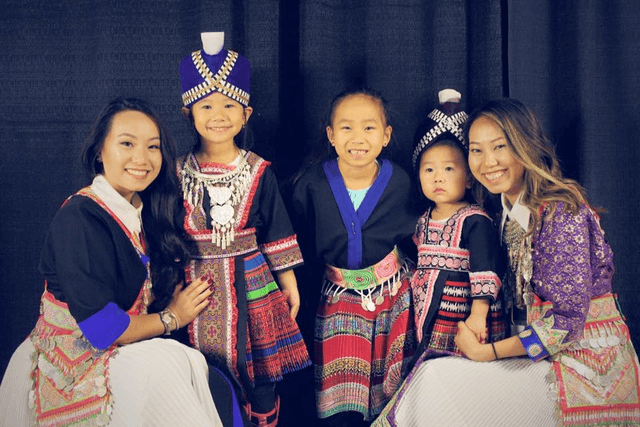
Belong
Kia, PR Manager: On acceptance and sticking to her roots
May is Asian American Pacific Islander Heritage Month – a month in which we celebrate the kaleidoscope of cultures within the Asian American and Pacific Islander community. During AAPI month we will be sharing stories from some of our AAPI team members to help people understand our history and culture and learn about ways to give back to the AAPI community. We’re putting together a resource page on how to get involved in your local community and will be sharing stories from some of our AAPI team. Discover Kia's story.
What aspects of your ethnicity/culture do you wish more people knew?
During the Vietnam War, the US CIA recruited Hmong people to fight alongside them in what they deemed a “secret war”. They relied on Hmong soldiers to prevent the threat of communism from spreading in Southeast Asia. Many Hmong people lost their lives in the war and during their escape. My mother’s family lived and hid in the jungles for 2-3 years as they fled to Thailand seeking refuge. Thankfully, my dad’s family lived closer to the border so their journey was a lot shorter. Though Hmong people were hired by the CIA, they are not recognized as US veterans and receive no benefits.
What’s a food that is unique to your ethnicity/culture and what do you love most about it?
A majority of the food Hmong people eat is actually a blend of the many dishes from Southeast Asian countries where Hmong people have migrated to. Hmong people love their veggie dishes but one consistent thing has always been Hmong pepper sauce. This is probably where my love for sauce/dips came from! Many Asian communities have their own variation of it and call it “crack sauce”. It goes well with barbecued meat, but really can be put on top of most things. It’s definitely a staple at our BBQs!
How has being a Hmong individual shaped your experience growing up in the USA?
I’ve always felt I wasn’t “enough” of one identity. Not Hmong enough but also not American enough. The Hmong community marked me as being “white-washed” because I didn’t grow up having a lot of Hmong friends, so it felt like I had to constantly prove myself to a lot of my Hmong peers. On the flip side, when I was younger, I never felt American enough because my parents didn’t allow me to do certain things that my other friends’ parents did. Both experiences have really empowered me to accept that I am both Hmong-American. It’s made me so proud to stick to my roots and understand the privilege I have of being a first-generation Hmong-American.